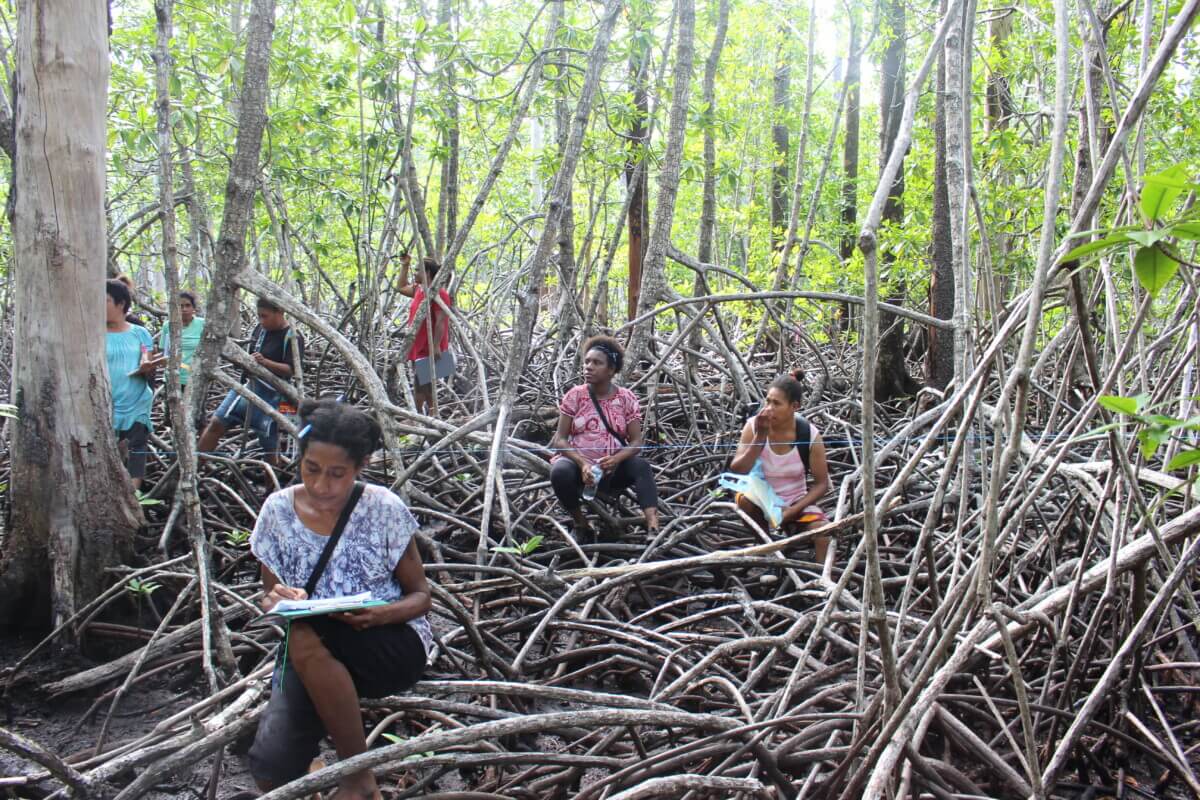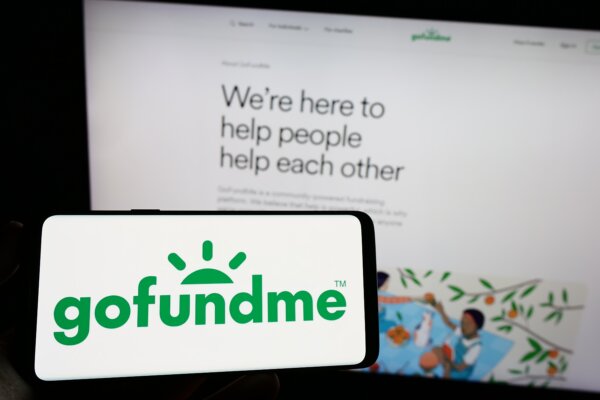
Women surveying mangrove forests as part of Mangoro Market Meri in Papua New Guinea. (Credit: Ruth Konia)
QUEENSLAND, Australia — Women are being overlooked when it comes to decisions regarding natural resources and conservation efforts, according to a recent study. Experts worry this exclusion could prove detrimental in future worldwide conservation attempts.
Researchers at the University of Queensland and Nature Conservancy looked into the reason behind the gender disparity and the effect it could have in the field.
“It was no secret that females were underrepresented in conservation science. In fact, according to a recent analysis of 1051 individual top publishing authors in ecology, evolution, and conservation research, only 11% were women,” says Robyn James, UQ Ph.D. candidate and Nature Conservancy Director of Conservation in Melanesia, in a statement.
“We analyzed more than 230 peer-reviewed articles attempting to address this very problem, confirming an uncomfortable truth: women’s voices are critically lacking in conservation. We found that gender discrimination is systemic and consistent, from small and remote communities in places such as the Solomon Islands to large conservation and natural resource management organizations, where women are still underrepresented in leadership and decision-making positions,” adds James. “This seemingly impacts conservation outcomes directly. Ten of the reviewed studies investigated the relationship between women’s involvement and conservation success – all found explicitly measured and demonstrated positive impacts.”
Dr. Nathalie Butt, a conservation scientist, says that women have had to overcome multiple barriers, including already established roles for both women and men.
“Firstly, to address this problem, we need to continually challenge the assumption that leadership positions are best held by men. There’s a persistent perception that men should be decision-makers and leaders in most contexts, both within conservation organizations and within communities where conservation work is undertaken,” notes Dr. Butt.
In addition, Butt says that there must be greater attention to the aspirations of women who seek a career in conservation and natural resource management. There also should be better education around gender-based discrimination women face.
“We must also do more research to understand women’s aspirations and agency within conservation and natural resource management. It’s critical to recognize and address the heavier workloads women carry outside the workplace – tasks such as caring and providing for the household – as these were evident in every culture we studied,” she says. “Finally, we need to bridge the lack of understanding of the gendered use of resources and the different access to resources that men and women often have. In Papua New Guinea, The Nature Conservancy has partnered with CARE on a gender audit of their conservation program and is working with all staff to undertake gender-based training. “They’ve also developed a new program called Mangoro Market Meri, led by co-author Ruth Konia, which is enabling women to lead conservation and economic decisions around mangrove resources in their communities. Also, at UQ, we’re signatories to the Athena SWAN Charter – 10 key principles to help advance gender equity, diversity, and inclusion. It’s a start, but there’s still a long way to go – this is a global problem – so let’s build a more equal planet, while we work to protect it,” said Dr. Butt.
The 2021 study is published in Oryx.











I read the above article and yes, we do need more recognition and representation from the brilliant women “pool” available and the women available that have no representation! I’m no women’s libber, but I am a women with a Bachelors degree and I can truly understand because I was under the same restrictions, different country! Do we need to scream it from the rooftops? Maybe!
I read the above article and yes, we do need more recognition and representation from the brilliant women “pool” available and the women available that have no representation! I’m no women’s libber, but I am a women with a Bachelors degree and I can truly understand because I was under the same restrictions, different country! Do we need to scream it from the rooftops?
I want to see more women who are on the front lines of discovery and from conservation science! Let’s do this people!